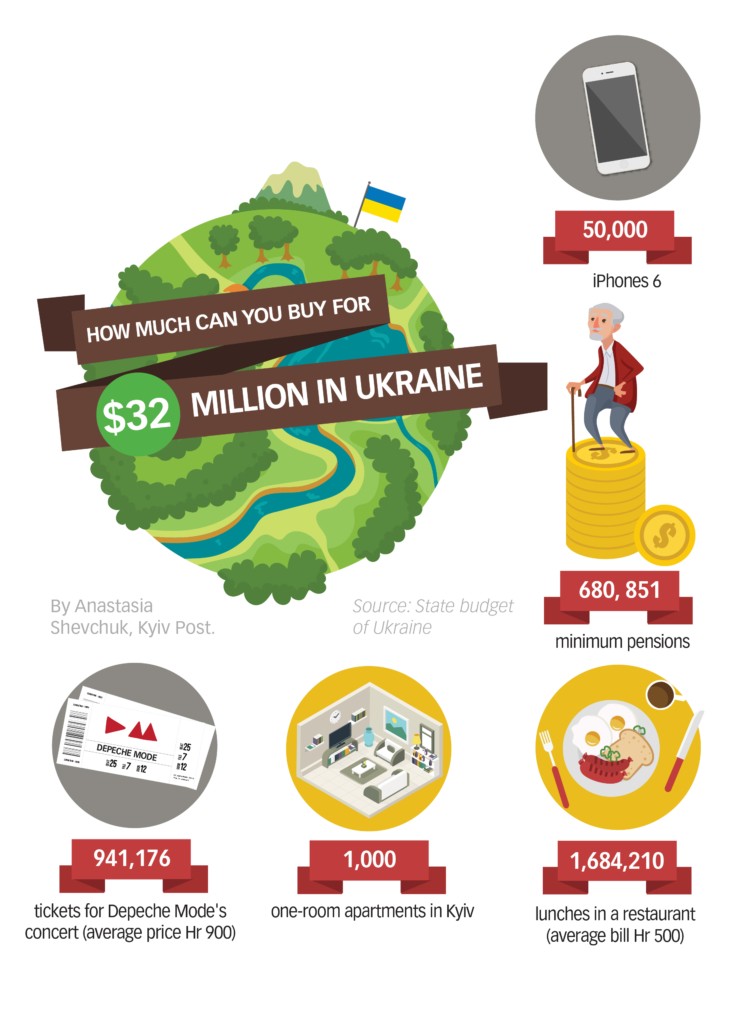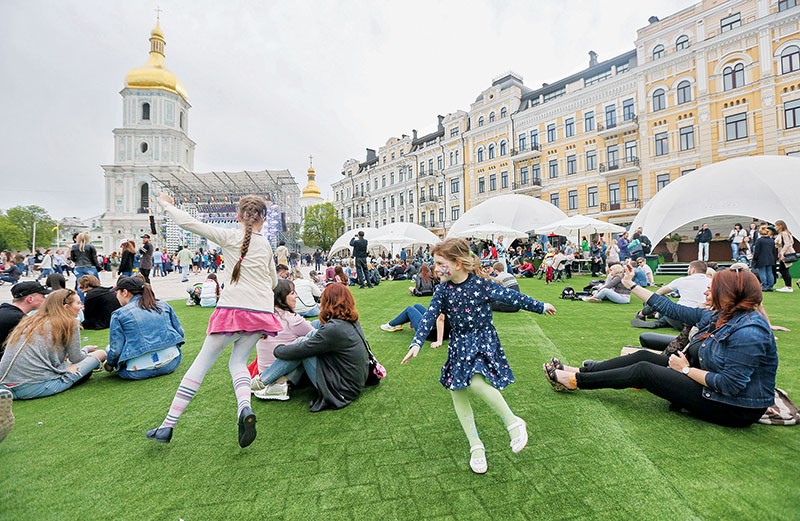The reviews are in: Ukraine hosted a successful, some even said flawless, Eurovision 2017.
While it faced its share of skepticism and scandals, including Russia’s withdrawal from this year’s contest after its entrant was banned for performing in Russian-annexed Crimea, the show met the expectations of many – from local businesses to tourists and TV watchers.
“Each year we have certain remarks or complaints: about transport or logistics, security or other aspects. But the Eurovision in Kyiv was held flawlessly,” Jon Ola San, the executive supervisor of the Eurovision Song Contest in 2017, was quoted as saying by the official Eurovision website.
The nation’s public broadcaster, First National channel, said Ukraine sold 64,000 out of the 70,000 tickets for all nine Eurovision shows, including dress rehearsals, while 230 million viewers tuned in to watch the contest broadcast live from Kyiv all over the world.
Money comes in
The $32 million budgeted for the contest was also aimed at boosting the nation’s image abroad and attracting tourists.

As many as 20,000 foreigners came to Kyiv during the period of May 5-9, when the Eurovision was held, not including journalists and the [participant countries’ delegations, according to the State Border Service.
Some 40,000 visitors from other Ukrainian cities also flocked to the capital during the contest.
Oleksiy Reznikov of the tourism department of Kyiv City Administration told the Kyiv Post that Ukraine proved it “is able to conduct a high-level international event. Now the world sees us not only as a country with a hybrid war, but as a strong nation and state.”
Kyiv city officials allocated $7.6 million to the state budget to host the contest, but it’s too early to say how much was made, Iryna Zolotar of the Kyiv City Administration said. Each tourist was expected to spend at least $500 in Ukraine, which would be $10 million in revenues if 20,000 visitors did, indeed, arrive.
But Eurovision clearly gave a temporary boost to local businesses.
Kirill Kislyakov, co-owner of three bars in the heart of Kyiv, said that he profited from Eurovision. More patrons came to his bars and two large groups of foreigners threw big “generous” parties.
Ukrainian restaurateur Dmytro Borysov, whose family of restaurants includes 12 venues, shares the sentiment.
“Our clientele increased at least by 30 percent,” Borysov explains. “Also, since we had a food court in the fan zone on Sofiyska Square that started working from late April, the number of the visitors increased drastically, since there were 10,000-12,000 people who tried our food there.”
Borysov says that the foreigners enjoyed their cuisine.
“Visitors ate 3.5 tons of borscht served in a cabbage in one of our restaurants over 10 days,” Borysov recalls. “They were happy with our Mediterranean oysters served with viburnum sauce for 3.5 euros, which is two times cheaper than anywhere else in Europe, as well as our Chicken Kyiv and varenyky stuffed with cherries.”
City hotels said they didn’t see more guests than usual, with May always being a busy month. However, the clientele was different this time.
Lyudmila Rebikova, the head of sales in a 300-room Tourist hotel near the Eurovision venue said that, during the time of the contest, around 95 percent of their guests were Eurovision fans.
Visitors’ feedback
The Ukrainian capital also won the hearts of the Eurovision performers: most of the contestants shared their excitement about the city during the red carpet event on May 7.
“It’s a nice city with a lot of beautiful people,” Naviband from Belarus said.
Israeli contestant Imri Ziv called Kyiv “a different kind of European” city, adding that he loved it and will “definitely come back.”
For Eugeniu Popovici, a TV editor at Moldova 1 TV Channel, it was his second Eurovision. He was in Stockholm last year, and said it was interesting to see how everything was organized in Kyiv. He is now planning his next visits to the Ukrainian capital. He said, however, that he felt there was a lack of a “Eurovision atmosphere” in the city.
“It was a beautiful (contest) and I liked that the organizers tried to bring national identity into the spotlight,” Popovici told the Kyiv Post. “However, I felt a bit uncomfortable with the huge police presence. And it was difficult to get around the city, because many streets close to the arena were closed.”
At the same time, Kyiv’s metro – the main means of transportation for many locals – was praised by Eurovision fans.
Nataliya Makogon, a representative of Kyiv subway, said they were “surprised” to learn that visitors enjoyed their rides in the metro and the fact that they worked late hours.
During the Eurovision, Kyiv promoted itself as a “safe, beautiful, tourist city.”

Girls play as people enjoy the opening ceremony of fan zone of Eurovision on Sofiyska Square in Kyiv on April 30. (Kostyantyn Chernichkin)
According to Kyiv city police, more than 10,000 police officers ensured safety during the contest. Police said only 10 tourists reported theft or fraud. However, some say police lacked competence and English language skills to help visitors.
Pavel Duganov from Chisinau in Moldova, who has traveled to every Eurovision contest since 2012, said that police officers often failed to provide instructions to the tourists. “At the same time, they closed their eyes on a number of minor traffic violations,” Duganov said.
Oleksandr Kharebin, the former executive producer of Eurovision, who was a part of team who quit amid scandal three months before the contest, said that the contest had not been properly promoted.
According to Kharebin, almost half as many Ukrainians watched the show this year as in 2005. Also, “many seats were free during the rehearsals, while the final was sold out.”
“Basically, Eurovision was held despite the top managers, not thanks to them,” he said.
